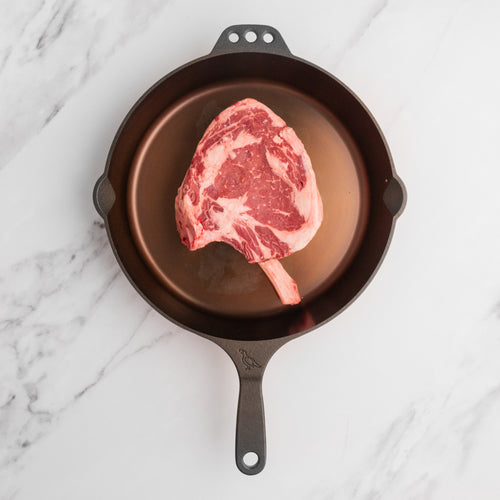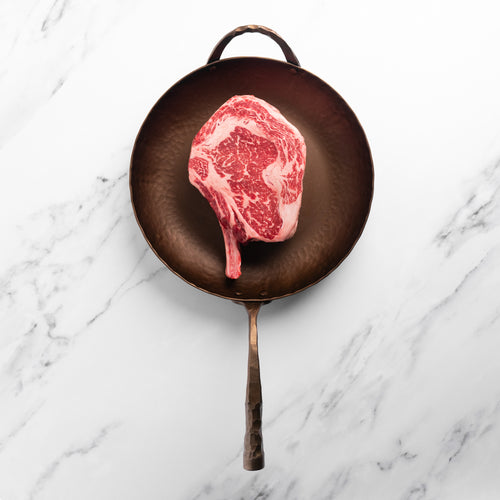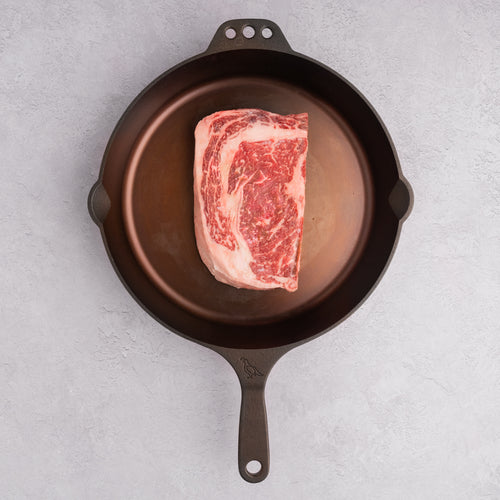
Snake River Farms: A Cowboy's Legacy
Robert Rebholtz, Sr. didn't start out as a cowboy. He was the son of a San Francisco banker but spent summers as a kid working on a cattle ranch where his passion for ranching and livestock took hold.
In 1968, Robert purchased Snake River Farms Cattle Feeders and founded Agri Beef. His goal was simple, but ambitious - to produce the finest beef possible. Endlessly curious and blessed with an anything-is-possible attitude, Rebholtz built a thriving business that was focused on the long game.
For Rebholtz, Agri Beef would be much more than a beef company. It would be a way to secure a ranching lifestyle for working families throughout the West. It would be a way to provide for his family. It would be a legacy. Over the next 20 years, he built Agri Beef into a multi-state business based in Boise, Idaho, with operations that touched on everything from ranching to animal nutrition.
And then, in the 1980's, he broke from the status quo of the industry. He decided to raise Japanese Wagyu Cattle in the United States. This daring move was the genesis of Snake River Farms.
The gamble wasn't focused on a single factor. It wasn't importing rare Japanese Wagyu bulls. It wasn't his plan to crossbreed them with high quality cattle breeds. Rebholtz had a bigger vision: To be a part of every step of the beef process, from the genetics of its groundbreaking cattle to the conversation with customers who would enjoy the products of its commitment to excellence.
As you might have guessed, the risk paid off. But it was tough going. Very few chefs had heard of Wagyu, let alone tasted it. In the 1990s, SRF executives had to personally introduce the brand to the county's top chefs - this was long before the era of easy access to the gourmet foods we take for granted today. The need that Snake River Farms was carefully raising was exotic, unusual and hard to find.
It all changed when the Old Homestead Steakhouse in New York City put a $41 burger made with Snake River Farms American Wagyu on its menu. The year was 2003 and $41 was an astronomical sum for nearly any dish. The press had a field day with the price and even Jay Leno Weighed in on The Tonight Show.
In that moment, Snake River Farms went from an oddity to a delicacy. Chefs from around the country began clamoring for more information and a chance to work with American Wagyu beef. The company began hosting big names at the Double R Ranch in Loomis, Washington, so they could see and understand the work that goes into every one of SRF's products.
It was a moment that Robert Rebholtz, Sr., would have been thrilled to see - but was not meant to be. Robert passed away in the late 1990's, leaving his son, Robert Rebholtz, Jr., to fulfill his dad's wishes.
But that's only one of the many advantages of being a family operation: When one person has a vision, it becomes personal to carry it out. Today, Robert Rebholtz, Jr., still helms Agri Beef, and Rebholtz Sr.'s grandchildren work in the family business.
Snake River Farms still thrives on Rebholtz's mix of no-holds-barred innovation and unrushed attention to detail. It's an unusual approach in an era of flash-in-the-pan businesses.
But it's a legacy that will endure.







